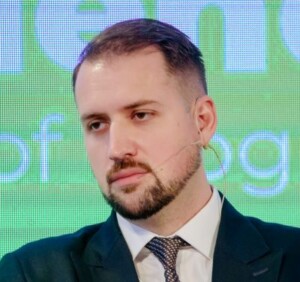Latest research shows that around 70% of young people have considered leaving Montenegro permanently. In Montenegro, like everywhere in the region, young people are less and less willing to wait for better times to come.

Edin Koljenovic
In the past decades, the Western Balkan region has faced and still faces demographic problems. This is evidenced by the fact that the number of people belonging to the working age population in the Western Balkans has decreased by almost half a million in the last five years. This was not only due to the negative natural increase of the population, but also caused by numerous other factors – mainly political and economic – which shaped the aforementioned trends, and especially the trend of young people leaving our vicinity.
Montenegro has made the most progress when it comes to EU accession negotiations, but it seems like this progress has not yet brought any concrete results on the ground that would be felt by citizens, especially those of the younger generation. On the contrary, the latest research by the Westminster Foundation for the Western Balkans showed that about 70% of young people considered leaving Montenegro.
The question of why young people are leaving Montenegro and the region as a whole is very complex, but what is apparent is the fact that young people are less and less willing to wait for better times to come. They choose to leave in order to simply realise their potential, especially in this time of great opportunities and connections with more developed countries. Certainly, this readiness to leave cannot be attributed only to the fact that young people are mostly ‘impatient’, but rather they see from experience that too many generations have been ‘waiting’ and have not yet ‘welcomed’ that better time.
Young people leaving is a problem which, unfortunately, endangers the substance of the state itself, that is, its foundations and its future. By not reacting in the right way, we are just showing that we don’t properly understand the phrase ‘young people are the future’. With the departure of young people from the region, our countries lose their basic development potential, they lose their productive substance. Simply put, without young people – we have no future.
If we take a look at the way things stand today, however, we will see that there are many other topics in focus which, unfortunately, take a huge amount of energy which could instead be a creative force. It is interesting to note that young people don’t leave solely because of the economic situation, though it is certainly one of the dominant reasons. Young people also leave because of the feeling of insecurity and instability – legal, political, and overall social.
What further burdens Montenegro are the growing tensions on the socio-political scene in recent years, which certainly have a significant effect on young people. Being held captive by the rhetoric of divisions, nationalisms, and reversals to the past, and especially past conflicts, in a way that encourages divisions, has had a huge impact on young people. One of the consequences is their refusal to continue to be part of the Western Balkan misconceptions, so they are clearly and increasingly deciding to leave.
It is up to all social actors to understand that we must tackle this problem as wholeheartedly and as openly as possible, because time is not on our side in this case. One way would be to invest in young people by providing as many opportunities as possible for their personal and professional development, especially to encourage them to grow into proactive and responsible members of the community. A particularly important aspect is giving young people opportunities for regional mobility, connections, and intercultural dialogue and learning. This way we can work on building up future generations who will have a clear vision of the Western Balkans living in peace, cooperation, trust and ultimately economic stability and prosperity. Only a region like that would be a better region for young people, and this change starts with young people themselves.
Edin Koljenovic, Head of the Regional Youth Cooperation Office (RYCO) Local Branch in Montenegro



Leave A Comment